Former Aberdeen loan striker Andrius Velicka thinks Scottish Premiership clubs like the Dons can still find transfer gems in Lithuania.
Ex-forward Velicka – whose short 2010/11 stint with the Reds followed more high-profile stints in Scotland with Hearts and Rangers – is now an assistant coach with both Lithuania’s under-17 and U15 national teams.
He thinks there are plenty of talented youngsters in his country with the potential to flourish if they were training at the likes of the Reds’ Cormack Park and taking on Scottish top-flight opposition every weekend.
Speaking to The Press and Journal, Velicka said: “Some scouts from Scotland just need to come to watch the games here, of young players.
“We have always talent here, you know.
“But here in Lithuania, to be honest, it’s not a high level (league, level of football), so young players need to go somewhere to get higher-level training sessions, playing time, higher-level games – everything.”
Chatting over the phone from his home in Kaunas, Velicka was already aware of Aberdeen’s recent signing from Baltic neighbours Latvia – centre-back Kristers Tobers having arrived from Swiss outfit Grasshoppers in January.
Tobers is just one example of a wide-reaching Dons transfer network which has seen them acquire players from markets including Hungary, Ireland, Norway, Sweden, France, Finland and Belgium in recent windows.
Velicka made the switch from home-town team FBK Kaunas to Scotland and Hearts in 2006 as part of Lithuania to Tynecastle loan conveyor belt which saw the owner of both clubs, oligarch Vladimir Romanov, ferry promising players from the former Soviet state to Edinburgh.
Since the official end of Romanov’s control of the Jambos in 2014, the flow of Lithuanian players to Scottish football has dried up.
However, multiple Lithuanian imports made a big impact on the pitch for the Gorgie side during the Romanov years, including Velicka – who netted 25 times for Hearts in just 18 months between 2006 and 2008, despite playing under SIX managers.
He said: “For us, you know, when Romanov bought Hearts, we had the opportunity to go on a higher level.
“If you played in Lithuania (without that), I can guarantee I would never have signed for Hearts or for Rangers, because I think nobody from Scottish clubs would ever come to Lithuania to scout the players.
“When he bought Hearts, a lot of people in Lithuania had a chance.
“If you were a player a little bit better than others, and he saw you playing… because of Hearts, a lot of players, I think, from Lithuania had a chance.
“Not everybody took this chance, you know, maybe – but Cesnauskis, Jankauskas, Mikoliunas, me, Zaliukas, you know, Barasa maybe (did).
“I played for Hearts, signed for Viking (Stavanger in Norway) and after I signed for Rangers, because Rangers saw me when I played in Scotland.”
Velicka: No ill-will from Dons fans despite Hearts and Rangers history
Two of Velicka’s three former Scottish teams, Hearts and Aberdeen, are set to meet each other in a Scottish Cup quarter-final at Hampden this weekend.
The 45-year-old revealed he will “definitely” be rooting for the capital club, where his goals made him a hero.
“Sorry, but it’s true,” he chuckled.
Understandably, Velicka retains more fondness for the Jambos (his “best years”) and Rangers – who took him back to Scotland from a short, unhappy spell at Norway’s Viking when Ibrox gaffer Walter Smith bought him for £1 million in summer 2008.
The deep-set rivalry between the Reds and the clubs where Velicka had come to prominence was a clear risk in Aberdeen gaffer Mark McGhee bringing him to Pittodrie on a season-long loan from Ibrox on summer deadline day 2010.
But McGhee’s struggling side needed the type of goalscorer Velicka had been at Hearts.
Having fallen out of the picture at Rangers before suffering a bad knee injury which torpedoed his previous campaign on loan in England, Velicka needed games.
He said: “It came after a big injury I got in Bristol City.
“I was just recovering and, after the knee injury, I played some friendly games for Rangers.
“But I got an injury on my ankle, and after maybe two weeks my agent came to me, and said: ‘You need to play. It’s a chance to get some minutes.’
“I just went to Aberdeen to play.”
Velicka was joining a Dons squad which still included centre-back Zander Diamond – who had been sent off for lashing out at the bustling forward during a clash with Hearts in 2007.
“He punched me,” Velicka recalled.
“It was just nothing, It’s just… it’s football, you know. There was no VAR, so it was just, just a moment of a game.
“When I signed for Aberdeen, we spoke about his moment – just laughing.
“To be honest, I loved the physical game.”
When Velicka was loaned to Aberdeen, Dons’ utility man Richard Foster had gone to Rangers in the opposite direction, earning him the eternal ire of some sections of the Red Army – even when he returned to Pittodrie the next season as captain.
Did Velicka, owned by Rangers and ex-Hearts player, experience any ill feeling from supporters when he arrived in the Granite City?
“Nothing” he says.
The ex-striker added: “I felt nothing, because in Scotland it’s normal that fans don’t like each other.
“It doesn’t matter if it’s Rangers-Aberdeen or Hearts-Aberdeen – it’s always loud in stadiums.
“And, for me, I’m playing football. It’s not my job to think about fans – I play for the fans of the team of which I’m playing, you know.
“The fans were okay.
“I went into the city with my wife and five-year-old daughter every day and there was nothing – nobody came to me to say something (bad).
“Everything was okay with the fans. I always had a good relationship.”
Ankle injury disturbed me ‘always’ at Aberdeen – Velicka
Despite his proven goalscoring record in the Scottish top-flight, Velicka ended up barely featuring at Aberdeen due to physical struggles, and wasn’t able to even make his debut for the club until a mid-October game against, ironically, Hearts.
Velicka – who went on to make six appearances, with one start, for the Dons – said: “It was a very bad game, kind of, I remember.
“I just played the first 45 minutes and they substituted me.
“But I felt very bad. I don’t know what was with me, but… I just played one half, first half, and that’s it.
“I didn’t play almost for a year, so it’s not so easy after one year not playing to just get back and play at your prime. It’s impossible.”
The former Don added: “The ankle injury was disturbing me always.”
Though he netted his only Reds goal in a November defeat against Inverness at Pittodrie, Velicka’s readiness to contribute for Aberdeen – who sacked embattled boss McGhee in early December, and replaced him with Craig Brown – only worsened.
He had been advised against training on the indoor surfaces used by Aberdeen in the colder months, with the isolation meaning he also did not build bonds with his team-mates.
“After the knee injury, I was not allowed to train on artificial grass, so I was… When we were training indoors, you know, on artificial, I was just doing my runs. I was just running around,” Velicka said.
“I was close to the physio – because I spent a lot of time with the physio!
“I didn’t have too much time to be friends with the players, you know, so… It was just about two months, so it was… I didn’t make some relationships with the players.
“Of course, everybody was friendly, but we were not friends – you know, to go out or something.”
Leaving Pittodrie – and Scotland – for Lithuania return
In mid-January 2011, new gaffer Brown secured a loan deal for Blackburn Rovers forward Nick Blackman.
This instigated the end of not just Velicka’s temporary switch to the Dons, but – coinciding with his release from his remaining Rangers deal – his time as a player in Scotland.
He said: “My agent, he spoke to Craig Brown and he said that he didn’t see me in the team, so I went, I think, to Switzerland (to St Gallen), but I didn’t sign there, and then I just decided to come back to Lithuania, because it was enough, you know, for me – injuries, loans, no playing time.
“I think I had an opportunity to sign for Motherwell as well, but I said: ‘No. Enough. I want to come back home’.”
The move back to Lithuania helped Velicka get his career going again.
Despite the ongoing ankle issue, he played the majority of matches for FK Ekranas during Lithuania’s 2011 summer campaign, scoring nine league goals, before getting surgery during the close season.
Another half season for Ekranas – and another nine goals – followed.
After a switch to Azerbaijan’s AZAL, a season-and-a-half then two seasons, respectively, back in Lithuania’s A Lyga with Zalgiris Vilnius and Spyris Kaunas saw Velicka close out his career with 24 goals in his final 97 professional appearances.
Velicka – who also earned 26 senior caps for his country – said: “I never became the same player, I think, because after two operations on my knee, you know, after recovering, after the same leg…
“I came back to Lithuania, I played with pain on my ankle one season, and, after a season, I made the operation on my ankle – it was not comfortable for me to play with injuries.
“After that, I played six more years maybe. I went to Azerbaijan as well for one season, so it’s not so bad!”
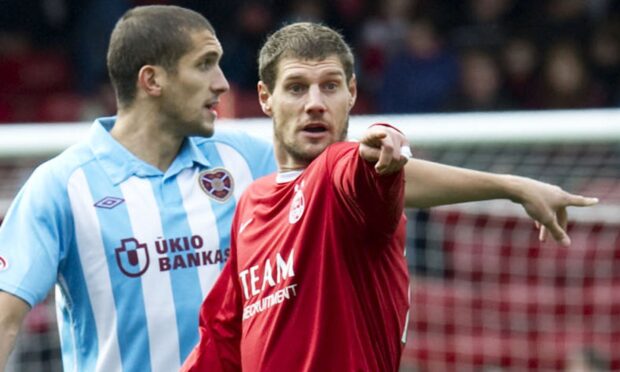
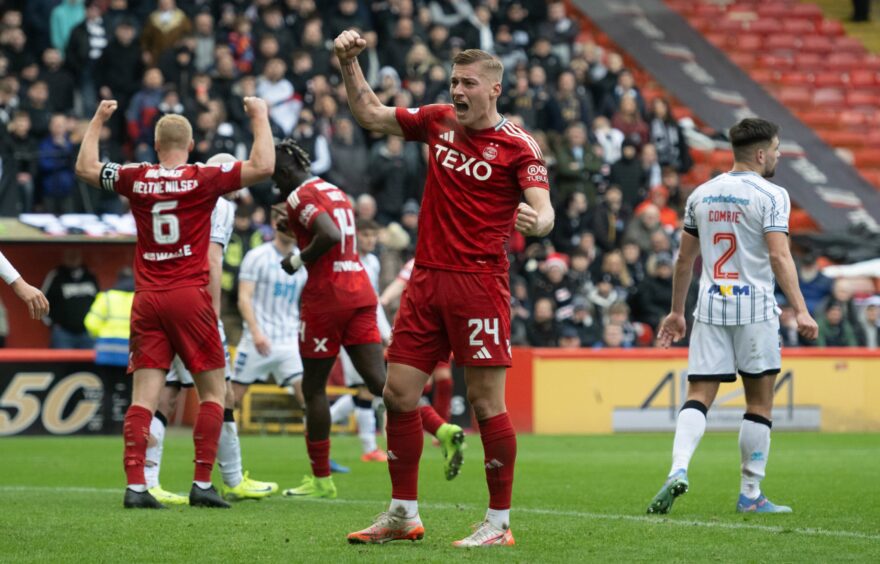
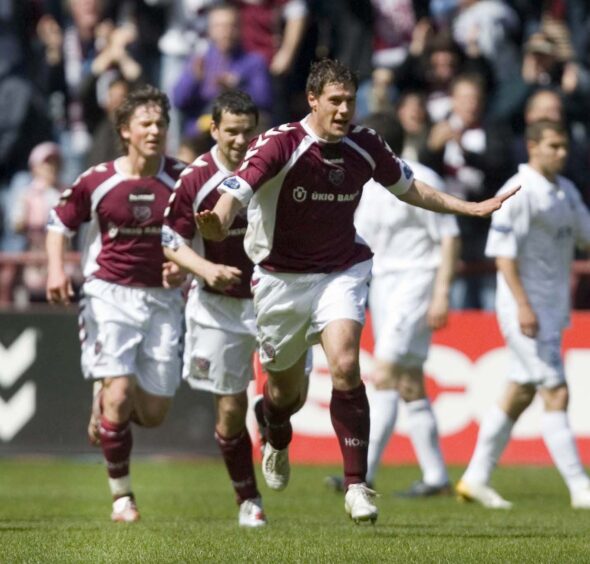
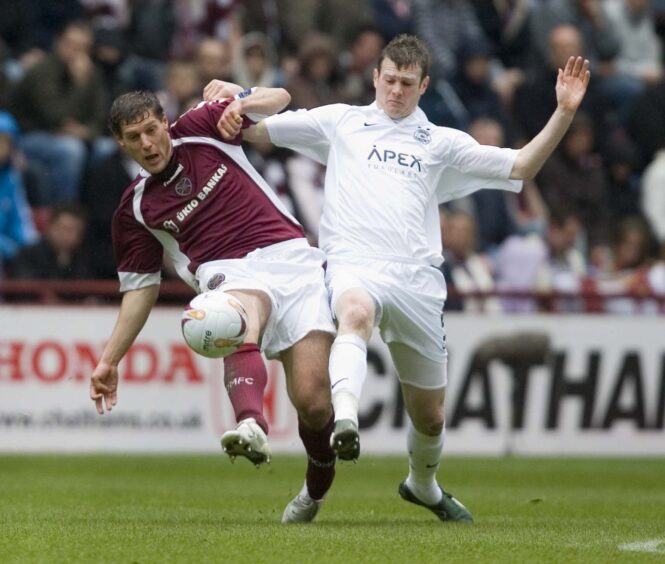
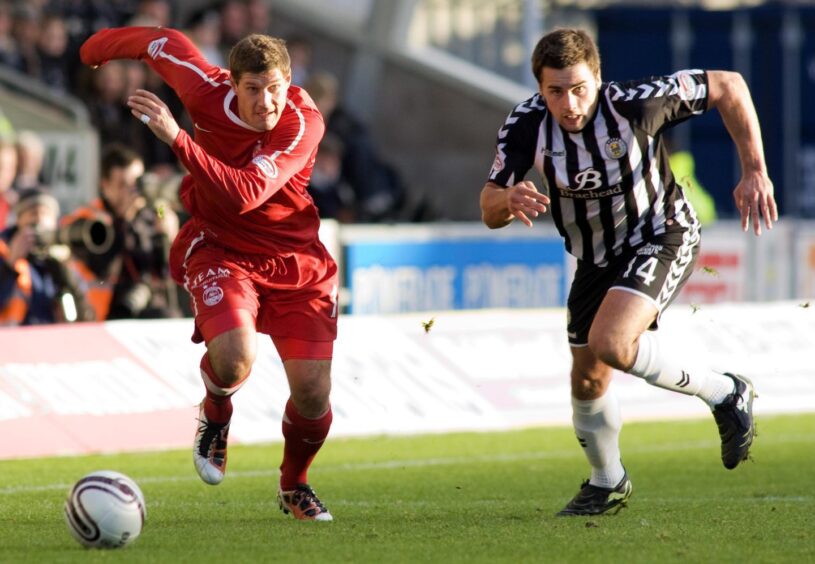
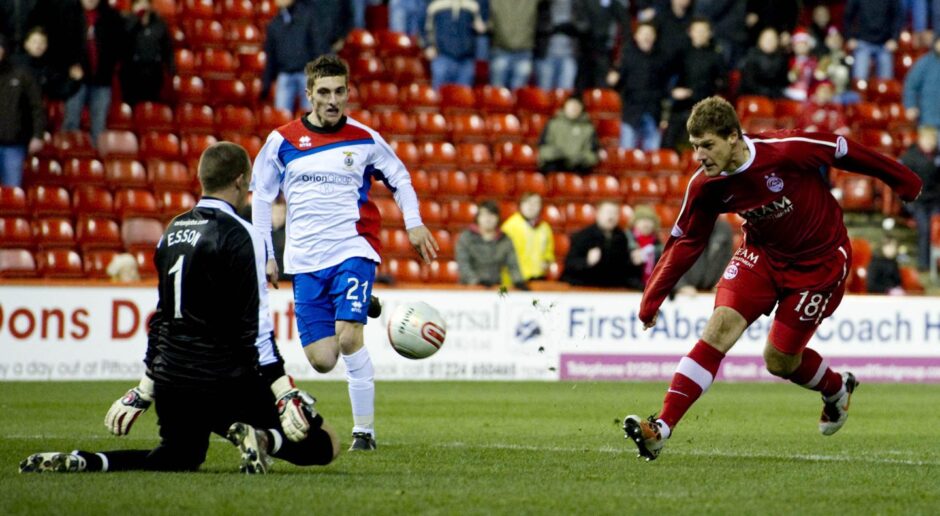
Conversation